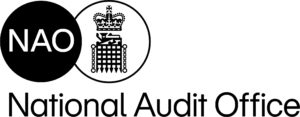Jessica joined the National Audit Office in 2007 and qualified in 2009. Today she is an Audit Principal.
I am currently an Auditor with the National Audit Office (NAO). Having successfully passed my Advanced Exams, I became a fully-fledged ICAEW member in August 2010.
Over the past three years with the NAO, as well as studying and taking exams each year, I have worked both within teams and led teams carrying out audit work for large public sector organisations. Having qualified, my role will change; I will lead more audits, take on more responsibility and step up to new challenges.
Why did you choose a career in accountancy?
My degree was in a very specialised subject, but I didn’t see my future in that sector. However, I have always enjoyed maths, and with the analytical and research skills I developed at university I thought accountancy, especially audit, would be a perfect fit – especially as I am naturally nosy! I was also attracted by the security of having a professional qualification and the wide range of opportunities available to qualified accountants.
I chose the NAO as my training provider because of its first class reputation as an organisation that deals with a wide range of unique and excellent clients. I should add that the NAO also offers a competitive salary and brilliant support throughout the professional training.
What is a typical day like for you?
This may seem an obvious thing to say but there’s no such thing as a typical day. There is a lot of travel and working away from home involved, as the Government organisations we audit are located all over England.
I have certainly visited interesting places in England and Wales that I would have previously overlooked. One day I will be travelling to meet with senior civil servants, the next I could be flying to the other end of the country to an on-site audit.
An ‘average’ day will usually start at 08.30 in the NAO office in Newcastle or at a client site. The majority of our clients work flexi-time, so it is essential to be flexible yourself. Working on and leading audits involves a great deal of intensive research, monitoring, reporting and planning, so demands on time can be quite conflicting. The key to dealing with this is being organised and prioritising.
What’s the best thing about your job?
I believe I am in a privileged position in auditing central and regional Government organisations. It is a role in which I can directly have a positive impact on behalf of the tax payer. This is especially pertinent in the financial audits I have been lucky enough to work on, such as the audit of the National Insurance Fund and of the Department for Work and Pensions. In addition, I have been able to work on a variety of our Value for Money audits.
This is an extremely interesting concept in itself, which seeks to analyse and improve current systems and processes.
What are your plans for the future?
The great thing about accountancy is its variety. In future, I would like to use my qualification to try out different roles and the possibilities are vast! I could move into industry, financial analysis or business advisory services and even stay in the public sector.
As this qualification is international, it is also a professional passport to travel the world. While languages may be a challenge, certainly the international language of numbers (and International Financial Reporting Standards) transcends this.
My plan at present is to use my public sector experience to become Finance Director of one of the large Government departments. Whatever the future holds, my time with the NAO and my ACA qualification will stand me in good stead.
Do you have any advice for anyone wanting to get into the industry?
Start by thoroughly researching the opportunities out there and try to look further than just the ‘Big Four’. There is a huge world of accountancy out there with an amazing array of different disciplines and hundreds if not thousands of companies looking to bring on the next generation.
If at first you don’t succeed keep looking and you will find the perfect career/training environment for you. Top tip – your university careers service can be invaluable for help with application forms and mock interviews.






